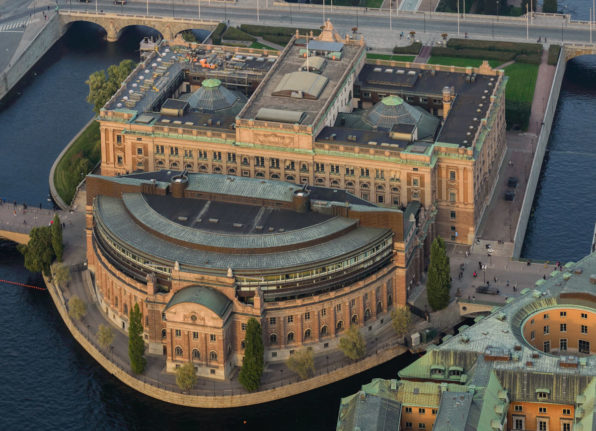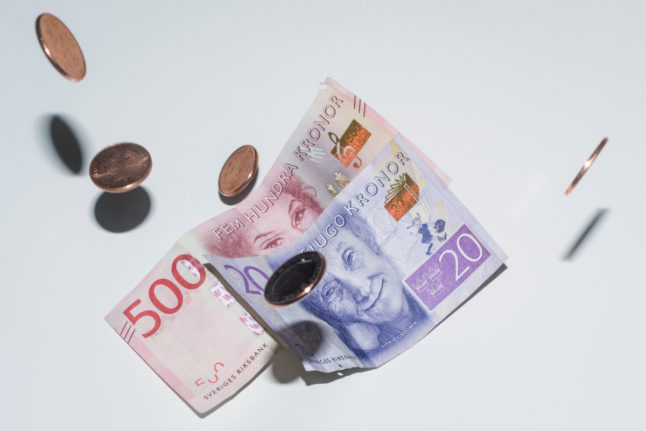The men, aged 30 and 23, were arrested in Gera south of Leipzig on Tuesday morning.
Identified as Ibrahim M G and Ramin N, Der Spiegel reports that they are Afghan citizens with links to IS Khorasan, the splinter group of the Islamic State terror group in Afghanistan.
They are suspected of planning to open fire on police officers and other people in or at the Swedish parliament building in Stockholm, in retaliation of a series of Quran burnings in Sweden in recent years.
According to the prosecutor’s arrest order, the men, acting in close consultation with officials of IS Khorasan, researched the area and tried to obtain weapons, albeit unsuccessfully.
Swedish police and security police declined to comment on the reports when approached by Swedish media.
The men were expected to appear at a remand hearing in Karlsruhe on Tuesday.
It’s the second suspected terror plot uncovered in Germany against Sweden over Quran burnings. In December, two brothers from Syria were convicted of planning a bomb attack on a church in Sweden.
Last year, at least four militant Islamic terror groups called for revenge attacks against Sweden in response to the series of Quran-burning protests carried out by the Iraqi activist Salwan Momika and by the Danish activist Rasmus Paludan.
As a result, Sweden’s National Centre for Terrorist Threat Assessment in August raised the terror threat level to “High”, or four on a scale of five. In a interview with The Local at the time, terror researcher Magnus Ranstorp called the threat against Sweden “unprecedented”.
According to the Germany’s prosecutor’s office, the two suspects are said to have made concrete preparations for the planned attack in close consultation with ISPK officials.
Germany’s security authorities have long been warning against the ISPK, an offshoot of the Islamic State in Afghanistan and Central Asia. The terrorist group has already tried in several cases to incite young people in Germany to carry out attacks on “infidels”, or police officers via the internet.
A cell of Islamists from Tajikistan, Kyrgyzstan and Turkmenistan arrested in Germany in July 2023 is also said to have been in contact with ISPK cadres. According to Spiegel, citing judicial files, they were possibly planning attacks on Jews in Germany, and a liberal mosque in Berlin could also have been a terrorist target.



 Please whitelist us to continue reading.
Please whitelist us to continue reading.
Member comments